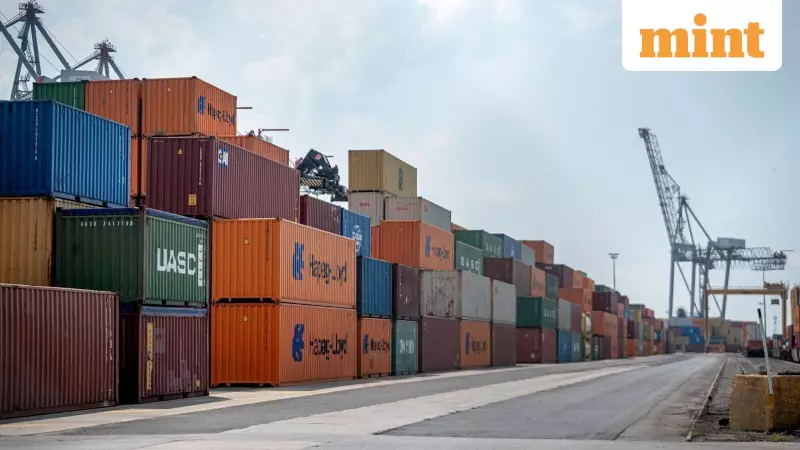
In a significant move to strengthen economic ties, India and the Eurasian Economic Union (EAEU) have established a quarterly regulatory meeting framework to address persistent market access challenges faced by exporters. The decision emerged from a high-level review meeting in Moscow chaired by Commerce Secretary Rajesh Agrawal, signaling a renewed push toward trade normalization.
Addressing Export Bottlenecks
The new quarterly dialogue mechanism will specifically focus on resolving certification and approval delays that have hampered agricultural and marine exports from India. This structured approach aims to create more predictable market conditions as global trade dynamics shift dramatically amid new US tariffs and increased scrutiny of India's oil imports from Russia.
Commerce Secretary Rajesh Agrawal met with Andrey Slepnev, Minister in charge of Trade at the Eurasian Economic Commission, to review progress on goods negotiations under the proposed Free Trade Agreement. The discussions build upon earlier dialogues within the India-Russia Working Group on Trade and Economic Cooperation.
Boosting MSME Exports
Industry representatives have welcomed the development as a crucial step toward helping smaller Indian exporters navigate complex compliance requirements. Vinod Kumar, President of India SME Forum, emphasized that "the EAEU market offers an important diversification window for India's small and medium enterprises when global trade conditions are becoming increasingly unpredictable."
He further noted that quarterly regulatory coordination can help remove certification and compliance bottlenecks that typically hinder smaller exporters. If implemented effectively, this could enable more Indian MSMEs in food processing, engineering, and chemicals sectors to expand their exports to Russia and the broader EAEU region.
Roadmap to $100 Billion Trade
The bilateral engagement reflects a mutual commitment to elevate trade volumes to $100 billion by 2030, a substantial increase from the $68.7 billion recorded in FY25. This surge represents nearly a 5.8-fold growth compared to pre-pandemic levels of $10.1 billion.
During the Moscow meetings, Secretary Agrawal also held discussions with Mikhail Yurin, Russia's Deputy Minister of Industry and Trade, exploring enhanced cooperation in critical minerals, pharmaceuticals, telecom equipment, machinery, automobiles, leather, and chemicals. Both sides agreed to streamline regulatory processes to address non-tariff barriers and improve ease of doing business.
The terms of reference signed on August 20, 2025 establish an 18-month schedule for FTA negotiations, aiming to create new opportunities for Indian MSMEs, farmers, and fishermen. India plans to explore services and investment chapters in upcoming negotiation rounds.
At an industry plenary session with companies from both nations, Agrawal encouraged businesses to align their projects with the 2030 trade target, highlighting India's expanding logistics network, digital public infrastructure, and opportunities for co-investment and co-production.
This intensified engagement forms part of India's broader strategy to diversify its export basket, de-risk supply chains, and strengthen economic partnerships as the nation works toward its Viksit Bharat 2047 vision of becoming a developed economy.






